Political Thought
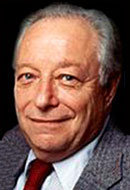 The Conscience of a Jewish Conservative
The Conscience of a Jewish ConservativeFriday, January 21, 2011 by Ruth R. Wisse | Jewish Ideas Daily » Daily Features
A Jewish thinker is normally someone devoted to the study and interpretation of Jewish texts, Jewish history, Jewish issues, Jewish ideas. The late Irving Kristol (1920–2009) was, for the most part, something else: a consummate American intellectual.
 A Zionist Who’s Who
A Zionist Who’s WhoThursday, January 20, 2011 by Yehudah Mirsky | Jewish Ideas Daily » Daily Features
The state of Israel, like the Zionist movement in all its forms—political, cultural, artistic, religious—was an astounding collective creation. The famous names are known, as are the slightly less famous. But what about all the others?
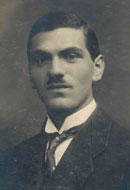 The Cosmopolitans
The CosmopolitansFriday, November 26, 2010 by Yehudah Mirsky | Jewish Ideas Daily » Daily Features
How many flavors does Zionism come in? The usual answer is three. Naturally, the reality is more complicated than that. And, in a period when Zionism is in serious need of defending and new thinking, some scholars have been complicating it still further.
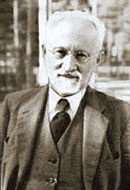 The Non-Zionist
The Non-ZionistMonday, November 8, 2010 by Yehudah Mirsky | Jewish Ideas Daily » Daily Features
The YIVO Institute in New York recently marked the 150th birthday of perhaps the most eminent among its founders: the historian and nationalist ideologue Simon Dubnow (1860-1941). Massively influential in its time, Dubnow's historical writing has been overshadowed by the work of later generations of scholars. In the meantime, the cause he championed—Diaspora Jewish nationalism—was throttled by the Holocaust. Yet the man and his ideas may be ripe for rediscovery.
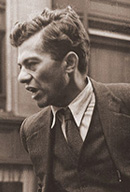 The Best Proletarian Novel Ever Written
The Best Proletarian Novel Ever WrittenThursday, September 16, 2010 by D.G. Myers | Jewish Ideas Daily » Daily Features
Comparisons between the Great Depression and current economic conditions "remain relevant," says the financial columnist Robert Samuelson—"and unsettling." Economic growth for this year's second quarter was a paltry 1.6 percent; unemployment hovers above 9.5 percent; sales of existing homes have fallen to their lowest rate in more than a decade; consumers show little sign of having recovered their confidence. At such a moment, American literature must surely be ripe for a revival of the Marxist-inspired "proletarian novel."
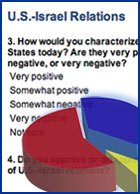 Polling American Jews
Polling American JewsWednesday, April 21, 2010 by Elliot Jager | Jewish Ideas Daily » Daily Features
What does the predominantly liberal Asian-American community think of President Barack Obama's policies toward China, particularly on the issue of Tibet? Where do America's 2.35 million Muslims stand on Washington's conduct of the war in Afghanistan-Pakistan? It's hard to say. Yet minute shifts in American Jewish public opinion are carefully tracked. Why? Because, says the Hebrew University political scientist Tamir Sheafer, although comprising at most three percent of the population, America's Jews—well-educated, relatively affluent, and "over-represented" in medicine, science, law, media, entertainment, and politics—are perceived to be an important, well-organized, and powerful interest group. They are major financial contributors to political...
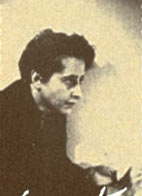 Hannah Arendt
Hannah ArendtThursday, March 4, 2010 | Jewish Ideas Daily » Daily Features
Nearly 35 years after her death, Hannah Arendt (1906–1975) continues to spark discussion and reflection. For Israeli readers in particular, the recent appearance in Hebrew translation of her magnum opus, The Origins of Totalitarianism, as well as of Elisabeth Young-Bruehl's massive biography (1982, rev. 2004), brings home her continuing ability to frustrate and provoke. A consummate German-Jewish intellectual, Arendt received a thorough philosophical training, studying (and more than studying) with Martin Heidegger and writing a dissertation on Augustine's theory of love. The rise of Nazism drove her from metaphysics to politics; she became active, first in Germany and later after fleeing to...
Editors' Picks
Drowning in the Red Sea Ruth R. Wisse, Jewish Review of Books. The history of Yiddish publications in America shows what moral credit writers of the highest order were prepared to extend to the Soviet Union.
Mob Tactics Lee Smith, Tablet. While the Shalit deal was a moral calculation and a form of strategic communication, the Grapel deal was a simple case of extortion.
When Qaddafi Courted the Jews Ron Kampeas, JTA. What led Qaddafi to cultivate back-channel relationships with Jews and the U.S. over the past decade? And why were Jews receptive to the dictator's overtures?
Trotsky the Jew Richard Pipes, Tablet. Can the Russian revolutionary be treated as an "eminent Jewish figure"? A new book attempts to do just that—and glides over the more savage features of Trotsky's thought and behavior in the process.
Otherwise Occupied Ira Stoll, Future of Capitalism. Occupy Wall Street protesters are trying to prevent their movement from turning against the Jews—but they may come head-to-head with an old, hard truth about anti-Semitism.
To Ransom or Not to Ransom? Aryeh Tepper, Jewish Ideas Daily. As demands for the release of captive soldiers grow ever more exorbitant, when is the price simply too high to pay?
Who's a Zionist? Sol Stern, City Journal. Those who support policies that endanger Israel, suggests the founder of J Street.
The Heartbreaking Boy Gilad Ari Shavit, Haaretz. There are many good reasons to oppose the deal for the release of Gilad Shalit. But until history has its say, let us rejoice in the kidnapped soldier's homecoming.
Mighty Jacobson Shana Rosenblatt Mauer, Haaretz. However darkly comic and compelling, the thick Manchester jargon and Yiddishisms of Howard Jacobson's Mighty Walzer may prove prohibitive for American readers.
Let Us Now Praise Muslim Feminists Phyllis Chesler, Pajamas Media. One Jewish woman celebrates the 19th- and early-20th-century Muslims who emerged from sex slavery to fight for universal human rights.

